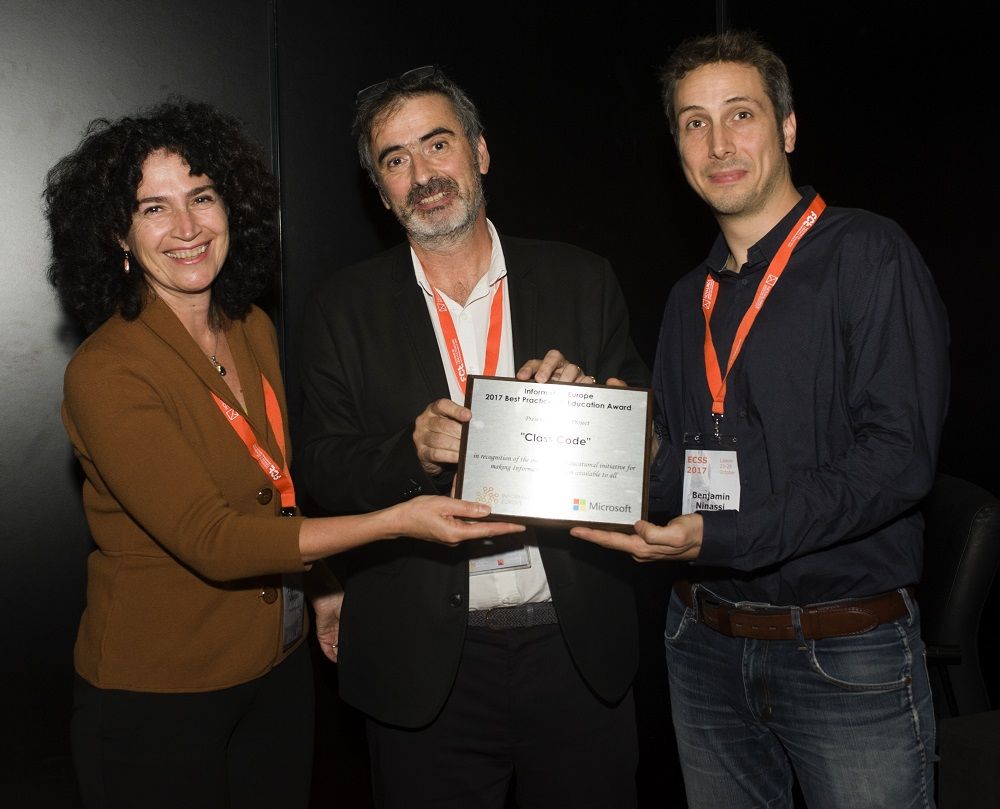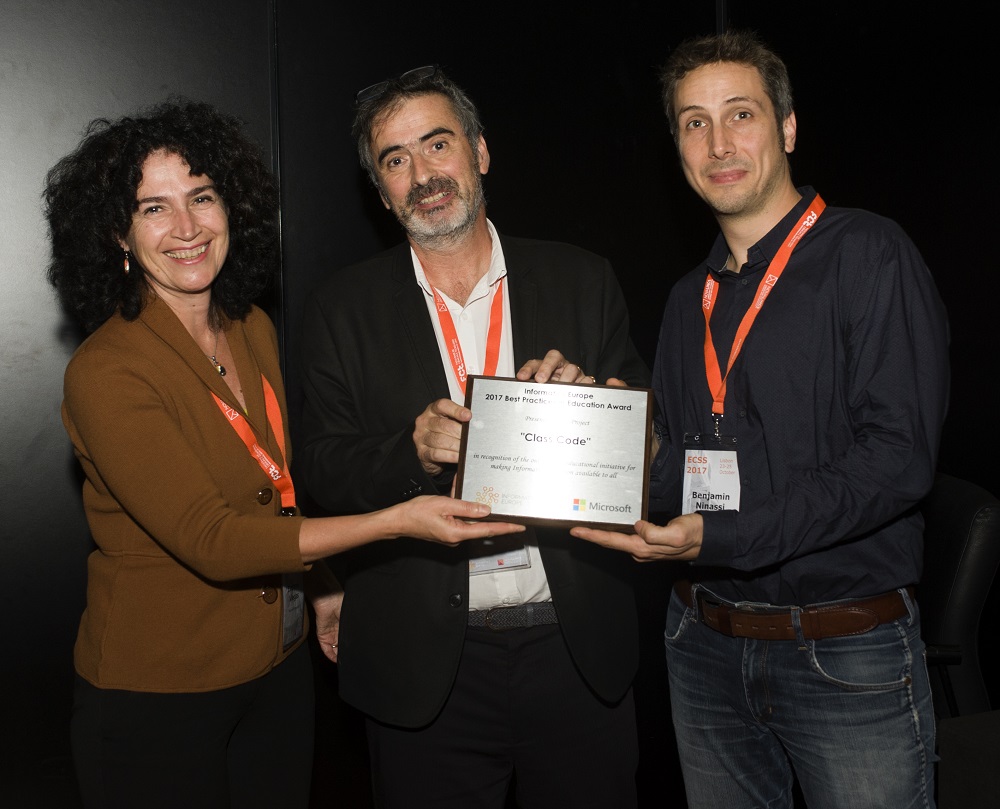ECSS 2017- Highlights
Lisboa, the city of light. We are in the middle of the autumn season, however the sun and the warm temperatures give us a flavour of late summer. The impressive award-winning building of the Rectorate of the Universidade NOVA de Lisboa welcomed over 110 participants united in Lisbon to attend the 13th edition of the European Computer Science Summit. The annual Informatics Europe Summit is consolidating its position as a major event in Informatics research, education and policy in Europe. The conference was a great success, three days of top class presentations by the invited keynote speaker, interesting debate and discussions and exchange among Deans, Department Heads, Research Directors, Professors and Researchers representating Informatics Departments, Faculties, Schools and Research Institutes from all over Europe and the US. Old members and newcomers enjoyed the three-day Summit and the enriching discussions as much as the delights from the colourful city of Lisbon and its tasteful gastronomy.
Informatics for all and the challenges of connectivity
The Summit began on October 23 with the traditional Workshop for Deans and Department Heads organised by Mehdi Jazayeri and Hannes Werthner. The main theme was ‘Teaching Informatics for all!’. Questions like if and how to introduce computational thinking and other basic concepts to first year students from other disciplines, or how to retain students and promote diversity without losing quality were among the main topics of discussion. Participants had also the opportunity to learn from speakers about policies and practices that make strong departments. For those who could not attend the Workshop, the slides of the talks presented by Shriram Krishnamurthi, Jim Larus, Luis Caires and Markus Püschel, are available for download on the Workshop website.
The main conference on October 24 and 25 explored the challenges of a growing connected society for the field Informatics. The Portuguese Secretary of State for Science, Technology and Higher Education, Fernanda Rollo, opened the conference reminding the importance of Informatics for our society and the global economy. In education, the demand for Informatics training across disciplines, the huge gap between the job market offer and the graduates output, as well as the needs of Industry and society in an increasingly connected world impose tremendous challenges for Universities. On the research side, not less challenging, Informatics is becoming increasingly multidisciplinary with higher demand for industrial and multi-collaborative projects as well as promotion of open access. Prominent academics provided their perspectives on a variety of topics on research, education and policy, leading to inspiring debate and questions. The presentations from Marie-Paule Cani, João Claro, Nuno Correia, Roberto Di Cosmo, Pierre Dillenbourg, Wendy Hall, Elham Kashefi, Michael Kölling, Kurt Mehlhorn, can be found on the ECSS 2017 website.
Complementing the program, a special session reported on the progress and important outcomes of Informatics Europe Working Groups on Education (Michael Caspersen), Women in Informatics Research & Education (Jane Hillston) and Research Evaluation (Floriana Esposito) all topics of central importance for the Informatics academic community.
Sharing their experiences and bringing to discussion complex issues like the future with social robots, autonomous machines and machine learning for complex moral decisions, the panel of experts in Ethics (Isabel Aldinhas Ferreira, Fabrizio Gagliardi, Leszek Pacholski and João Sequeira) chaired by José Luis Fiadeiro, closed the conference on a high note.
Special awards ceremony
A special moment of the conference was the awards ceremony, where the laureates of Informatics Europe Best Practices in Education and Minerva Informatics Equality awards were announced, together with the winner of the ERCIM Coor Bayen Young Researcher Prize. Class’Code from France won the 2017 Best Practices in Education Award. As team ambassadors, Colin de la Higuera (Nantes University) and Benjamin Ninassi (INRIA) received the 5,000 EUR prize from Evelyne Vegas, Microsoft, sponsor of the 2017 Award. The winner of the second edition of the Minerva Informatics Equality Award was the Institute for Computing and Information Sciences at Radboud University, The Netherlands. Lejla Batina, Head of the Digital Security Group and Bernadette Smelik, Managing Director of the Institute, received the 5,000 EUR award from Beate List representing the sponsor Google.
Tim Baarslag from CWI (The Netherlands) was selected as the winner of the 2017 ERCIM Cor Baayen Award for his work on the use of mathematical tools in decision-making processes.
Participation and engagement at the heart of Informatics Europe
As part of the ECSS program, Informatics Europe held its Annual General Assembly. Members had the opportunity to discuss the organization finances and strategy for future development as well as elect a new President, Vice Presidents and Treasurer and six new Board members. You can read more about the elections and get to know the biography of the elected Board members on our News page.
Enrico Nardelli was elected Informatics Europe’s President starting his term on January 2018. With great enthusiasm he addressed the members thanking them for their trust and support and encouraging their participation and feedback for building a stronger and more influent association. Enrico also thanked Lynda Hardman for her leadership and strong engagement in the past two years as President of Informatics Europe and for the excellent results and achievements.
The ECSS is travelling for the first time to Scandinavia in 2018. The Summit will be held in Gothenburg, Sweden from 8 to 10 of October 2018, hosted by Chalmers University. This is again a unique opportunity to join your European peers to debate the future of our field and contribute to a stronger European Informatics community.
Save the dates on your calendar! ECSS 2018, 08-10 October, 2018.










































































































































